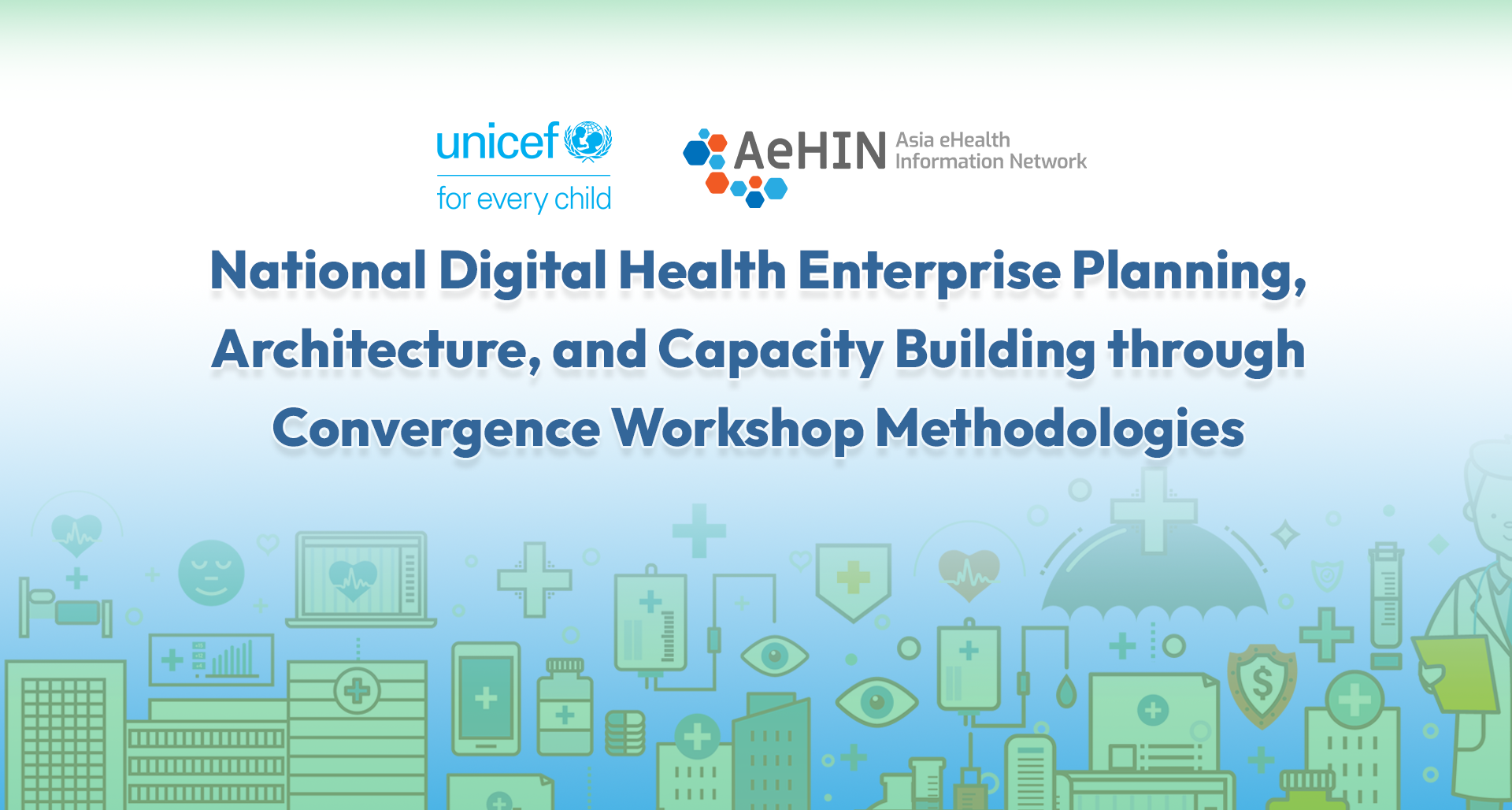Side Meetings
SMB304
National Digital Health Enterprise Planning, Architecture, and Capacity Building through Convergence Workshop Methodologies
29
Jan
- UNICEF and AeHIN

Achieving Universal Health Coverage (UHC) requires health systems that can effectively capture, exchange, and use health data. Since digital has been recognized as a key enabler for strengthening global public health. Governed by the state and with organized support from public and private sectors, digitally enabled and standardized health systems are crucial to provide accessible and equitable health care, particularly in low-resource settings.
The session is designed to facilitate people interoperability (governance and collaboration) and systems interoperability (data standards-based) in national digital health programs, especially in low-to-medium income countries (LMICs). AeHIN will introduce and discuss the Digital Health Convergence Workshop Toolkit version 1.2, a microsite developed with support from PATH and UNICEF, which documents essential updates to the existing Digital Health Convergence Meeting Toolkit published in 2018 with the support of the ADB, WHO Regional Office for South-East Asia, UNICEF, and AeHIN. Thus, this session will revisit the toolkit and facilitate an understanding about the need, role, and utility of ‘convergence’ among various stakeholders in the digital health ecosystem, emphasizing the coordinated, collaborative, and coherent governance and management efforts to help countries achieve UHC. These efforts include capacity development on standards and interoperability to ensure connected health care systems in the context of digital health transformation.
The toolkit updates are crucial in ensuring that participants are well-informed and prepared for the challenges and opportunities in digital health. Six years after the publication of the existing convergence meeting toolkit, the digital health landscape has advanced significantly, including the proliferation of technical guidance from development partners and the development of national digital health strategies in the Asia Pacific. To facilitate the alignment of multiple efforts and investments in a highly evolving field, AeHIN has developed updates for inclusion in the existing digital health convergence meeting toolkit:
1) Country experiences documentation of digital health convergence workshops in Lao PDR, Sri Lanka, and Indonesia
2) AeHIN Whitepaper, ‘Call to Action: Strengthening Digital Health Ecosystem in Asia’
3) Use of Global Digital Health Monitor (GDHM) in digital health convergence workshops.
AeHIN has gathered ten countries and formed the Community of Interoperability Labs (COIL) to give life to the standards and artifacts that have been formalized by the governance bodies. Several connectathons have given opportunities for the countries to see the role of standards and how they can be adopted by the stakeholders.
Overall, the inclusion of practice-based (country experience documentation), consultative (regional digital health call to action), and guidance (GDHM application) updates in the toolkit, as well as the conduct of interoperability labs and connectathons, is envisioned to help governments and their partners improve convergence or collaboration to better leverage digital health as a tool to accelerate the achievement of UHC. In essence, digital health convergence workshops provide a space for the government to take ownership of the digital health transformation process by onboarding stakeholders from different sectors. Interoperability labs in turn engage these stakeholders through various activities to form communities supporting the standards. All these activities provide a viable platform for development partners to reaffirm the Principles of Donor Alignment for Digital Health by aligning support to government-led national digital health strategies and programs, including standards and interoperability.
1) Describe the concept and process of conducting digital health convergence workshops based on the Digital Health Convergence Meeting Toolkit.
2) Note/identify the recent three updates featured in the toolkit version 1.2 (microsite).
3) Discuss challenges and lessons learned in supporting digital health initiatives in LMICs.
4) Explore best practices and lessons learned developed and field-tested on digital health capacity-building in LMICs, especially key strategies for developing communities around standards and interoperability to enable a connected health care system.
5) Outline practical guidance or action steps to include in the next iteration of the toolkit to improve people and systems interoperability (e.g., building a network of digital health leaders who can champion governance, architecture, people and program management, standards and interoperability (GAPS framework).
6) Articulate the need, role, and utility of digital health convergence workshops to their peers and share resources that are available from AeHIN and partners in the public domain to those in other countries/regions.
7) Demonstrate the steps towards forming interoperability labs to nurture the growth of a community of practice and its use in strengthening routine immunization.
8) Describe emerging, multi-sectoral Digital Public Infrastructure and accompanying eGov governance models for country-led digital transformation agenda.
9) Strengthen Health Data Governance

